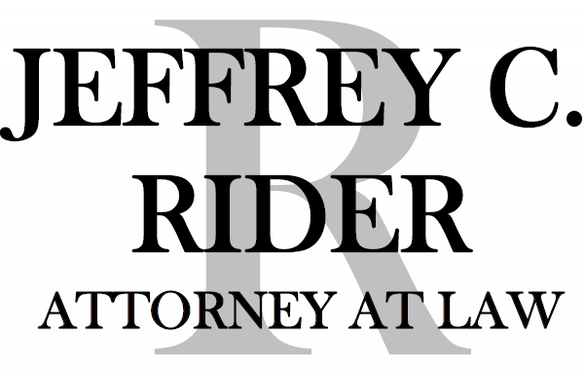PROBATE
What is Probate?
"Probate" has a bit of a bad reputation in the world of estate planning. Most of the talk concerning probate is about how to avoid it. While people often agree that avoiding probate can be a good idea in many cases, it's helpful to understand the probate process so that you can form the best plan for yourself.
"Probate" is a legal process that deals with the assets and debts left behind after someone dies. By default, probate is supervised by a court, called the probate court. Note that the term "probate" can be used to describe the legal process, the court in which the process takes place, or the distribution of assets. The probate process can include all aspects of estate administration, such as:
Probate: Pros and Cons
The cons of probate are what drive people to try to avoid it -- specifically, that probate is time consuming and expensive. Many states require 30 to 90 day waiting periods as part of probate. If a relative or potential heir decides to contest the will or the court's asset distribution, the process can take even longer. In addition, the court, attorneys, assessors, and other professionals involved all charge fees for processing an estate. These fees typically come out of the estate itself.
There are, however, some benefits to the probate process. First, for certain estates in some jurisdictions, probate may be required. It's best to check with a local probate attorney to determine whether probate is necessary in your jurisdiction. Second, the formality of probate court often gives some degree of certainty to the deceased's family. If there was ever a question about whether a will is valid or about the worth of a particular asset, the probate process will find an answer.
We Can Help!
Probate, estate planning, and intestacy law are governed by the states. What may be legal in your state may not be legal in neighboring states. If your estate looks like it may be complicated, whether it's due to its size, the type of assets your estate will have, or the number of potential heirs, contact us today! We would love to give you personalized help with planning your estate.
Perhaps you're not quite ready to face your own immortality but a close relative has recently passed away. We would love to take a load off of your shoulders and help you handle the final affairs of your loved one, or we can at least answer some of your many questions. Contact us today to see how we can help you!
Created by FindLaw's team of legal writers and editors.
"Probate" has a bit of a bad reputation in the world of estate planning. Most of the talk concerning probate is about how to avoid it. While people often agree that avoiding probate can be a good idea in many cases, it's helpful to understand the probate process so that you can form the best plan for yourself.
"Probate" is a legal process that deals with the assets and debts left behind after someone dies. By default, probate is supervised by a court, called the probate court. Note that the term "probate" can be used to describe the legal process, the court in which the process takes place, or the distribution of assets. The probate process can include all aspects of estate administration, such as:
- Proving the validity of a will, if it exists,
- Choosing an estate administrator, executor, or representative,
- Totaling all assets both in and out of the estate,
- Paying all applicable estate taxes and other debts,
- Identifying all heirs and other relatives,
- Distributing any remaining assets to the heirs as described in the will or intestacy statutes.
Probate: Pros and Cons
The cons of probate are what drive people to try to avoid it -- specifically, that probate is time consuming and expensive. Many states require 30 to 90 day waiting periods as part of probate. If a relative or potential heir decides to contest the will or the court's asset distribution, the process can take even longer. In addition, the court, attorneys, assessors, and other professionals involved all charge fees for processing an estate. These fees typically come out of the estate itself.
There are, however, some benefits to the probate process. First, for certain estates in some jurisdictions, probate may be required. It's best to check with a local probate attorney to determine whether probate is necessary in your jurisdiction. Second, the formality of probate court often gives some degree of certainty to the deceased's family. If there was ever a question about whether a will is valid or about the worth of a particular asset, the probate process will find an answer.
We Can Help!
Probate, estate planning, and intestacy law are governed by the states. What may be legal in your state may not be legal in neighboring states. If your estate looks like it may be complicated, whether it's due to its size, the type of assets your estate will have, or the number of potential heirs, contact us today! We would love to give you personalized help with planning your estate.
Perhaps you're not quite ready to face your own immortality but a close relative has recently passed away. We would love to take a load off of your shoulders and help you handle the final affairs of your loved one, or we can at least answer some of your many questions. Contact us today to see how we can help you!
Created by FindLaw's team of legal writers and editors.
